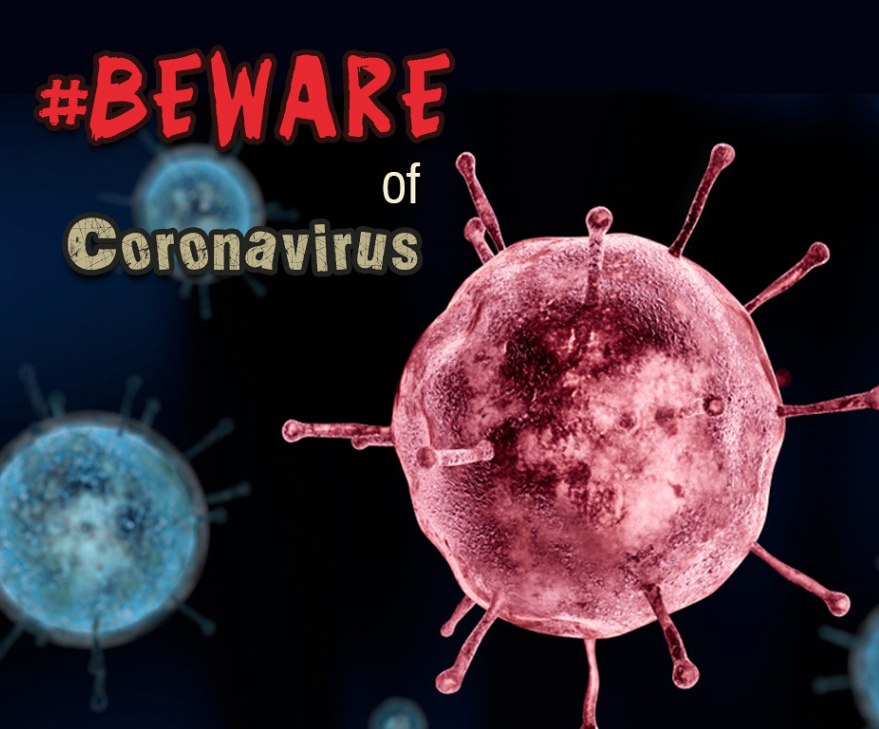The CoronaVirus: Preventing, Protecting, and Detecting
March 12, 2020
As the world prepares for the threatening disease called the coronavirus, most people are unaware of the severity of this pandemic. With the world now facing it; it is important to understand how to prevent, protect, and detect this illness.
The coronavirus is a series of viruses that were initially identified in the 1960s. The new form, Novel Coronavirus (COVID-19), was confirmed in Wuhan, China in December 2019. This was derived from a “wet market” that sells dead and live animals, and may have possibly been contaminated by infected bats. According to Telegraph.co.uk, “Bats were not sold at the Wuhan market, but may have infected live chickens or other animals sold there.”
This disease is specifically found in animals, then transferred to humans through consumption. It then attaches to the respiratory system. When contracted, it becomes airborne and spreads from person to person.
People with the virus may often be unaware as the symptoms are not recognizable, especially in the first five days. The symptoms can be similar to the common cold, flu, pneumonia or bronchitis for those with weakened immune systems. A few of the indications include fever, cough, and shortness of breath. In severe cases, the coronavirus can result in kidney failure and death. If you notice any of these symptoms, seek medical care. If you are not seeking medical care, stay home and avoid public areas/transportation.
Knowing the symptoms is not enough. It is also important to know how to prevent it, the CDC recommends to:
- Wash hands frequently especially after touching another person, money, doorknobs, phones, etc.
- Use hand sanitizer with at least 60% alcohol concentration.
- Disinfect surfaces with natural disinfecting products.
- Stay at least six feet away from people who are visibly sick.
- Don’t touch your face if your hands are not washed.
- Limit contact with people regardless if they seem infected or not.
- Wash clothing thoroughly, especially with hot water as germs can linger on clothing.
- Ventilate rooms as the coronavirus is an airborne disease.
- Stay home if you’re sick to recover and contact your doctor immediately.
- Cover your mouth and nose when you sneeze or cough.
According to NJ.com, New Jersey Governor Phil Murphy declared a state of emergency, after about a dozen patients were announced to have the Coronavirus. As of March 10th, one death has been confirmed. Oxford’s definition of a state of emergency is “a situation of national danger or disaster in which a government suspends normal constitutional procedures in order to regain control.”
In order to prevent the spread of the virus, schools in the state are preparing to close for thorough cleansing. On Wednesday March 11th, many schools throughout the Jersey City district had an early dismissal where teachers stayed behind to develop lesson plans in case of a Department of Health 14-30 day mandated school closure, according to the UACHS website.
In order to protect themselves from the disease, everyone should learn about this information. It is important to know how to prevent it and detect it. The Coronavirus is real and should be taken more seriously.
